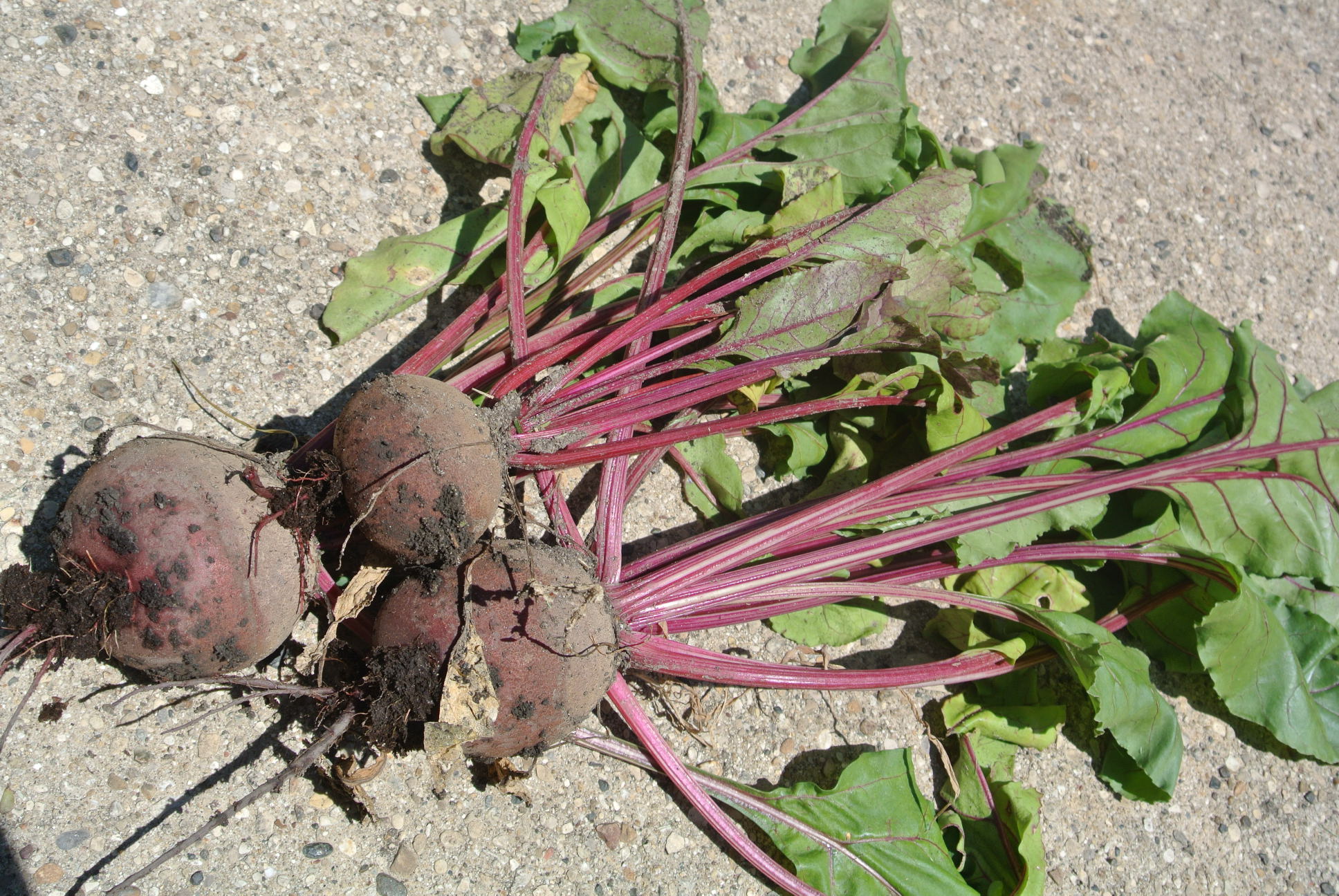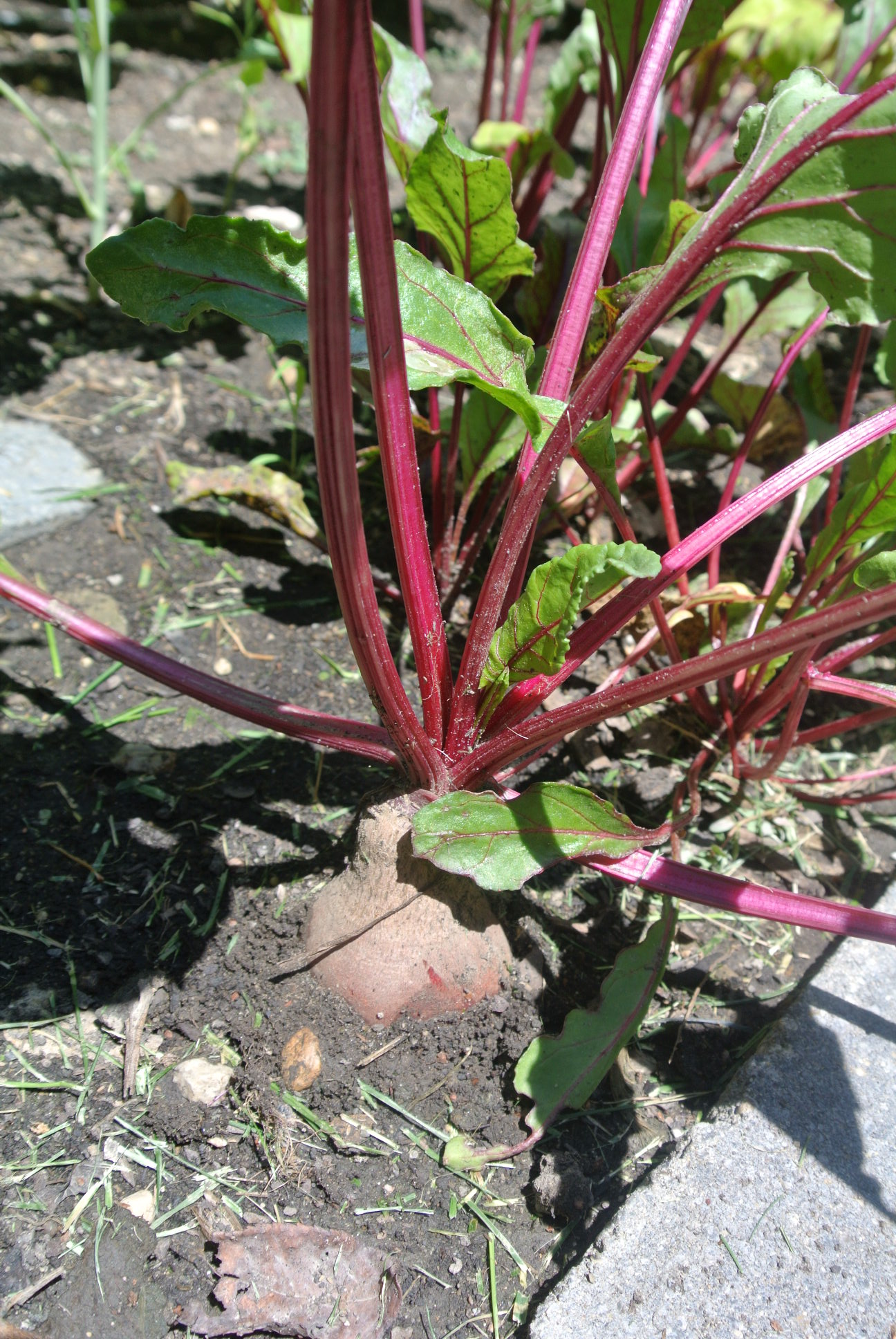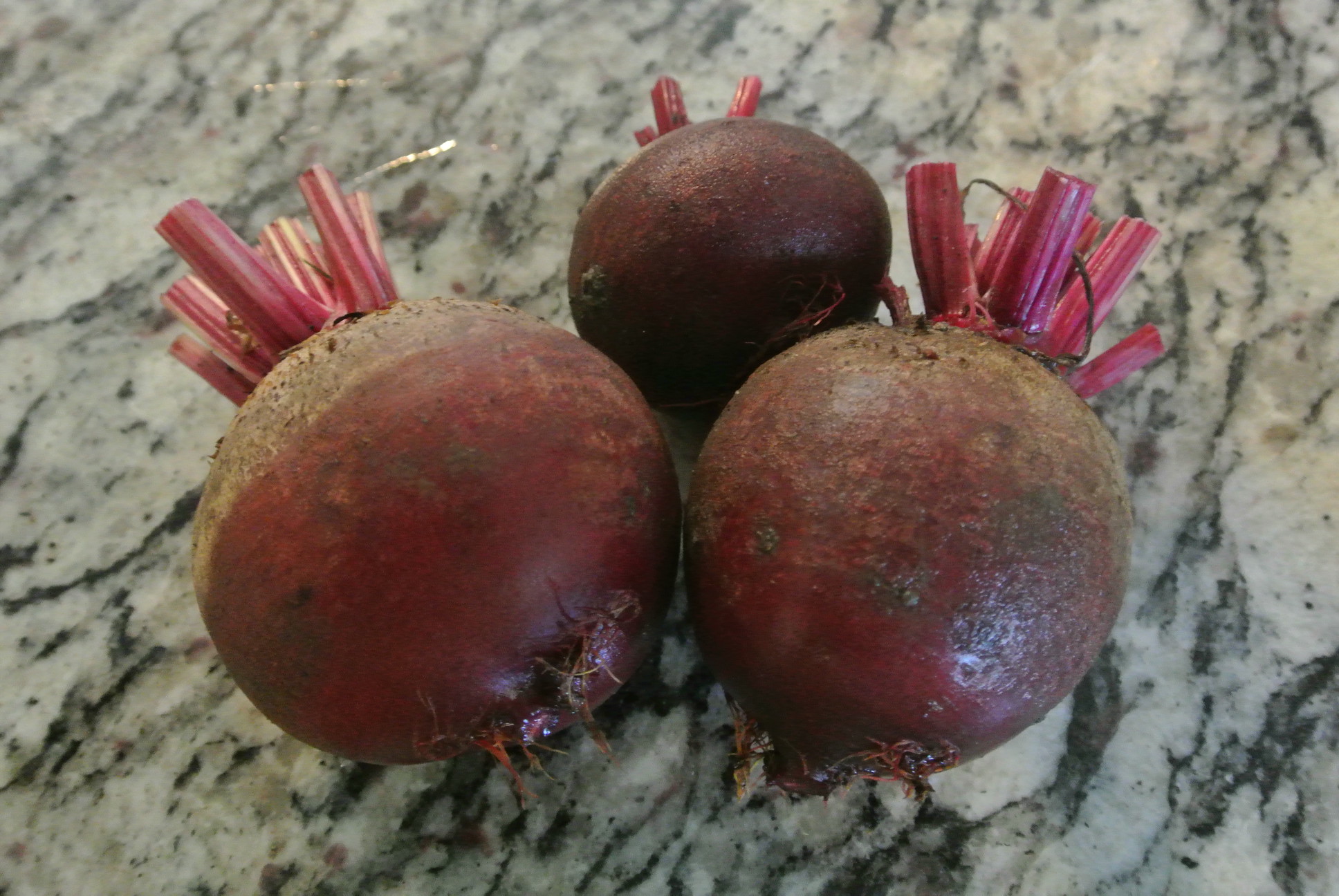This is my first year trying my hand at growing organic beets. I’m not a professional gardener although I’ve been gardening every summer for the last few years. Growing these guys was pretty easy. In fact, next year I’m growing more. Why? You ask…. Well….
There are plenty of reasons to like beets other than the taste…Some people think beets taste like dirt. I never realized it until a friend who had never tried one before stole one off my plate last summer and made a nasty face. I guess they kind of do, but I like them because….
1. They’re good for you – Beets are high in all kinds of vitamins and minerals – things that have been proven to lower depression, de-stress the mind, lower inflammation, help with detoxification, and provide a lot of energy with a high dose of sugar and low calories.
2. They’re an aphrodisiac – that’s right. I had no idea but apparently they were used medicinally by ancient Romans. Beets contain high amounts of Boron which lead to the production of human sex hormones.
I started these beets inside in mid-March in expandable soil pellets. Now, come July, I think they’re ready to harvest. How did I know if they’re ready to harvest?
Harvesting Beets
Beets have multiple uses and their harvest will depend a bit on what you want to use them for. If you want to use the beet greens as baby greens in salads you can pick the leaves when they’re about 2″ tall. If you wait until the greens are older they are best served steamed (I don’t personally like them like this so I just chuck them in my composter).
The flavor and texture of beet roots are usually better when they’re smaller and more tender – if you wait until they get too large they can get woody. For me, the time is now, mid-summer. Ideally, the roots should be anywhere between 1″ and 4″ in diameter (usually this can vary based on type – check your seed packets)
All sounds good right? But seriously – the roots are under the ground – how do you know how big they are?
Typically, if the leaves are 4-6″ tall, the roots should be large enough to harvest. At this point you should be able to see the shoulders like this: It’s pretty obvious that this beet is about 2″ or so in diameter so it’s ready to go!
Storing Beets
Store the beets unwashed in a plastic bag in the fridge. You can cut off the tops but be sure to leave about 1-2″ on the stem so the beets don’t bleed all over everything. Beets should last a week or so this way. Or…….. You can make pickled beets like I am. Check back later for that post and a few more beet recipes when my next batch is ready in a few weeks!



Actually, the health benefits of beets have been in the news lately!! Beets contain high amounts of nitrates which are known to be great for cardiovascular health. Recently, a university study on athletic performance used beet juice to increase their athlete’s endurance (the length of time they can continue to exercise before they fatigue). Turns out the nitrates in beets increase oxygen uptake in the cells, which essentially, produces more energy and less fatigue in the working muscle! Now beet juice is being used by athletes for an “instant” endurance boost, without additional training! Other nitrate rich veggies include greens such as arugula, parsley, spinach, endives, fennel and leaks. The athletes drank about 2 cups of beet juice a day for six days and increased their endurance and performance by 16%! So, if you haven’t tried beets, maybe Kristina’s recipe is a good way to start! All of us could use an energy boost!
Wow, that’s amazing! I’ll have to make sure I grow even more next year 🙂 I’ve had a lot of success growing my arugula so have eaten a lot of it this year too – I must be healthy haha